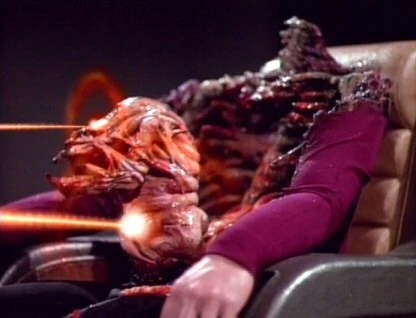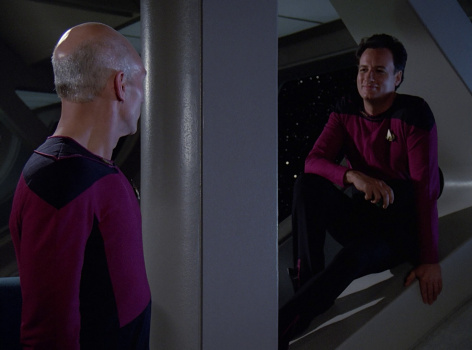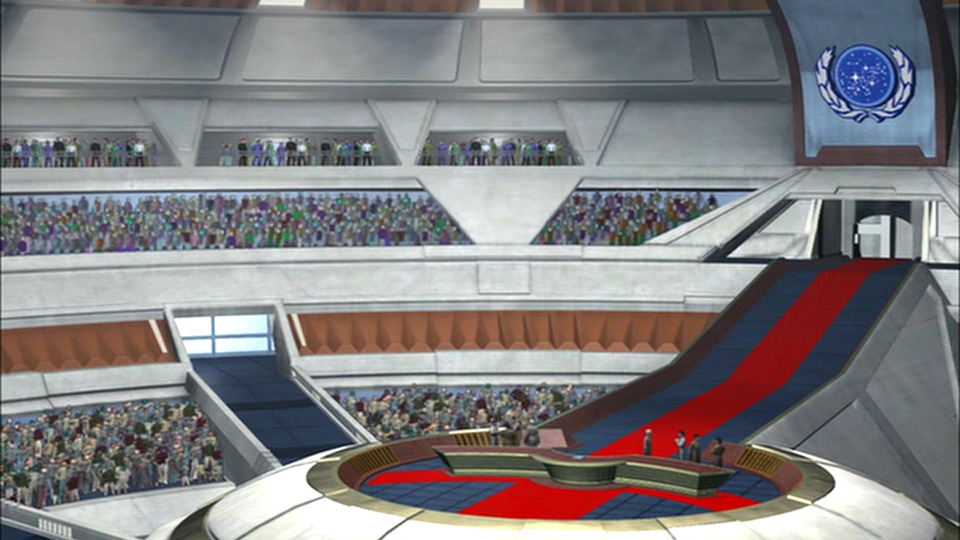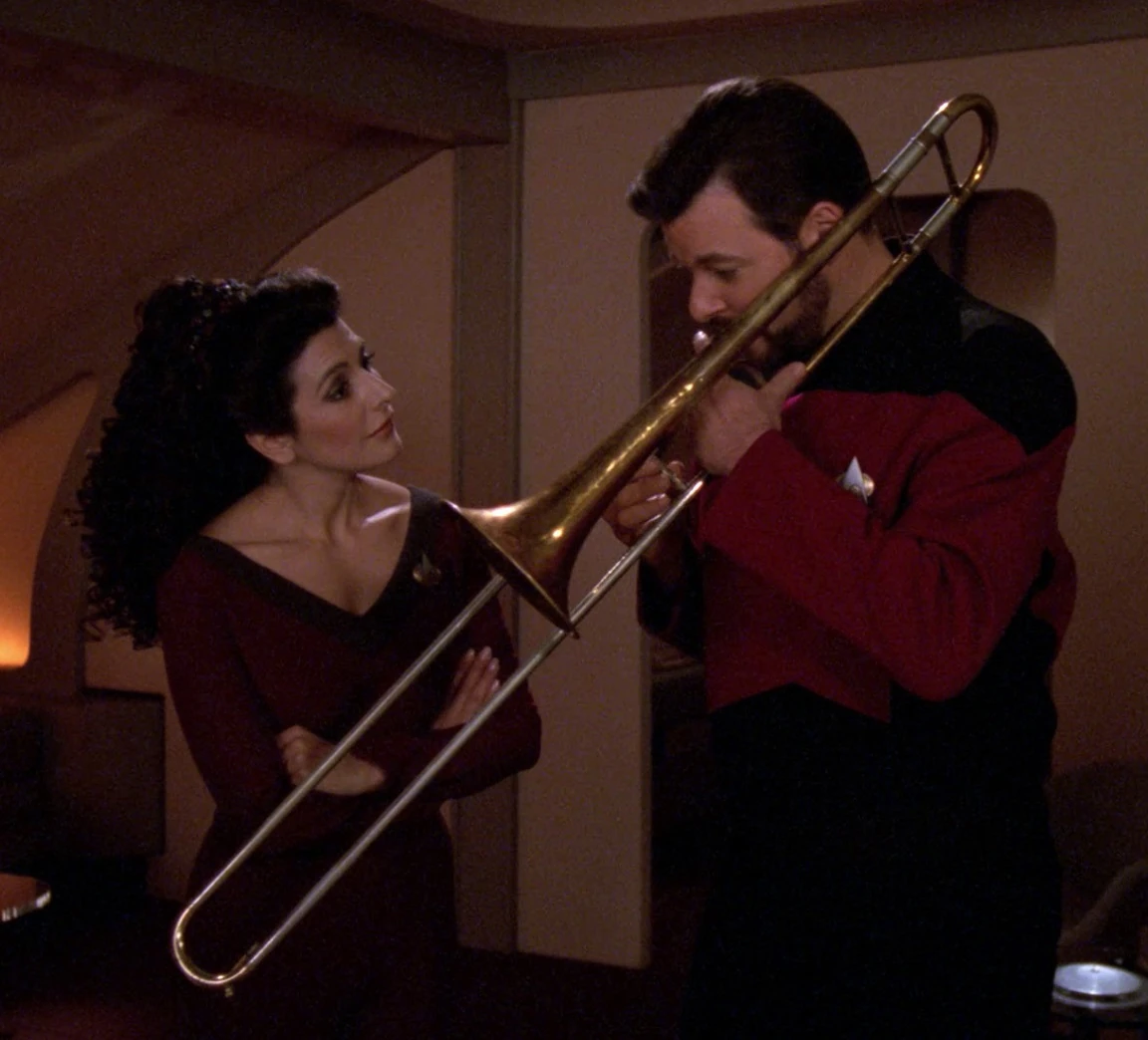Hello guys
and gals. After a few years, I am back to posting on the blog. Something that
prompted this was a few weeks ago, I was watching a video on Youtube where they
counted the actual number of torpedoes fired by Voyager. The
actual number is several times larger than the actual stated number. I posted
that I had a theory that Voyager was actually a Section 31 ship and that
Katheryn Janeway was specifically chosen to be captain due to her unwillingness
to break the Prime Directive even if it meant getting home faster. A youtuber
commented they wished to read the full theory, so here we go.
Voyager Theory Part 1: Pax
Federation
- The trouble is Earth.
- Really?
-On Earth there is no poverty, no crime, no war. You look out the window of Starfleet headquarters and you see paradise. Well, it's easy to be a saint in paradise, but the Maquis do not live in paradise. Out there in the Demilitarised zone, all the problems haven't been solved yet. Out there, there are no saints, just people. Angry, scared, determined people who are going to do whatever it takes to survive whether it meets with Federation approval or not.
The Federation had been a shining example of social government and equality. In the nearly 300 years of it's existance, it had beaten back every enemy it had come across. It had even made alliance with it's enemies, such as the Klingons during the 2293 Khitomer Accords. It had become so secure in it's own power that it had actually dismantled many of it's own starbases and stripped the military aspect of its Starfleet, declaring Pax Federation throughout the Alpha and Beta Quadrants.
There had
been the occasional border disputes. Such as with the Cardassians and the
Tzenkethi, who had brought about their own small conflicts. But these had been
resolved, with only the Cardassian peace causing any sort of scandal with the
creation of the Demilitarized Zone, which placed many Federation citizens
on the wrong side of the border, taking away the security they had enjoyed in
the Federation.
 There were of course the occasional scandal. Perhaps the
biggest one came in the form of a parasitic race that had infiltrated Starfleet
Command itself. The parasitic race had originated from the Delta Quadrant,
and as they took over the bodies of members of the Starfleet Admiralty, they
eliminated any person who were not bamboozled.
There were of course the occasional scandal. Perhaps the
biggest one came in the form of a parasitic race that had infiltrated Starfleet
Command itself. The parasitic race had originated from the Delta Quadrant,
and as they took over the bodies of members of the Starfleet Admiralty, they
eliminated any person who were not bamboozled.
As with all
thing Trek though, this conspiracy was defeated in one fell swoop. Our heroes
of the Enterprise-D dispatched the parasites with perhaps the
single-most goriest death of Star Trek history.
But such
events were the the exception and not the norm. The Federation had grown to a
state where the economy was not based off money, but apparently off a barter
system. The pursuit for material gain was gone, replaced by a pursuit to simply
push one's self, improving one's natural abilities.
- The economics of the future are somewhat different. ...You see, money doesn't exist in the twenty-fourth century.
- No money? That means you don't get paid?
- The acquisition of wealth is no longer the driving force in our lives. ...We work to better ourselves ...and the rest of humanity. Actually we're rather like yourself and Doctor Cochrane.
-Jean-Luc
Picard and Lily, "Star Trek: First Contact"
Personally, I
have always wondered just why anyone would actually go do
anything in a society where need has been eliminated. Without gain, why would
anyone, such as Joseph Sisko, open businesses? Why would someone write books
like Jake Sisko? With the introduction of holodecks and replicators, why would
anyone want to leave their own homes?
Not to keep
pushing this tangent, but we even see that creativity in pop culture has all
but ground to a halt. We don't see new books being released. Outside of Jake
Sisko's books he's written, almost every book we have ever seen comes from
Earth's past. Music seems to have all but been restricted to either classical
or Jazz.
Most holodeck
programs that Federation citizens seemed to focus on the outdoors or old time
bars. Novels from the past made up the majority of holodecks based on books.
Few were centered on action, instead focusing on peaceful environments.
Starfleet as
well changed its focus. The majority of activities were scientific related. No
longer was it focused on preparing for major conflicts. Without major
opposition to challenge them, the need for keeping a keen tactical edge was
negligible.
-I prefer brains over brawn as well. I think it's a waste of effort to test our combat skills. It's a minor province in the make-up of a starship captain.
-William T. Riker, "The Next Generation - S2 E21: Peak Performance"
They went so
far as having families on-board starships. Out of the just over 1,000
people on-board the Enterprise-D, a good portion of this was made
up with children and spouses of crew personnel.
This feeling of luxury the
Federation was experiencing actually created a feeling of goodwill towards
all their neighbors. They went so far as to allow people from non-Federation
worlds to serve in Starfleet.
The
Federation of United Planets was in a golden age. An age of plenty, sickness
free, poverty vanished. If one simply wished to step outside their door, a
whole galaxy awaited for them.
But then Q
came onto the scene. And a simple discourse passed between him and Captain
Picard that signaled that this complacent Federation had been lulled into
the worse type of feeling: a feeling of false security.
- Oh, the arrogance. They don't have a clue as to what's out here.
-They're moving faster than expected, further than they should.
- But they will learn, adapt. That is their greatest advantage.
- By whose calculations?
- You judge yourselves against the pitiful adversaries you have encountered so far. The Romulans, the Klingons. They are nothing compared to what's waiting. Picard, you are about to move into areas of the galaxy containing wonders more incredible than you can possibly imagine, and terrors to freeze your soul. I offer myself as guide only to be rejected out of hand.
- We'll just have to do the best we can without you.
- What justifies that smugness?
- Not smugness, not arrogance. But we are resolute, we are determined, and your help is not required.
- We'll just have to see how ready you are.
-Q, Jean-Luc Picard, William T. Riker, Guinan, "The Next Generation: S2
E16: Q Who"
Coming up
next: Part 2: Assimilation


No comments:
Post a Comment